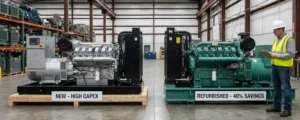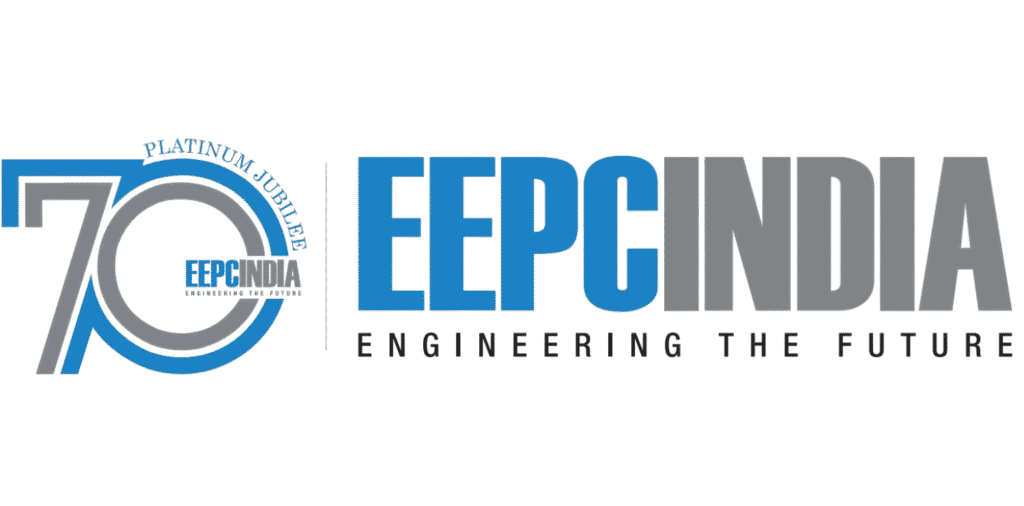An annual maintenance contract (AMC) is one of the most critical investments you can make for your power generation equipment. Whether it’s a backup generator for a data center or a prime power source for an industrial facility, an AMC is your first line of defense against unexpected downtime and costly, catastrophic failures. However, not all AMCs are created equal. A basic agreement might offer little more than a simple oil change, leaving your most valuable assets vulnerable.
A truly comprehensive annual maintenance contract is a proactive partnership designed to ensure reliability, maximize equipment lifespan, and provide peace of mind. To ensure you’re getting the protection you need, your service agreement should be built on a foundation of detailed, scheduled services. Here is a complete checklist of what to look for.
1. Scheduled Preventive Maintenance
This is the cornerstone of any effective annual maintenance contract. Proactive care is always less expensive than reactive repair. A detailed preventive maintenance schedule moves beyond simply reacting to problems and instead aims to prevent them from ever happening. This is the most effective way to extend the lifespan of your equipment.
Your Checklist:
Regular Service Intervals: The contract should clearly define the frequency of service visits (e.g., monthly, quarterly, semi-annually) based on manufacturer recommendations and your equipment’s usage.
Fluid and Filter Changes: Regular changing of engine oil, oil filters, fuel filters, and air filters is non-negotiable.
Coolant System Service: The technician should check coolant levels, test antifreeze concentration, and inspect all hoses and connections for leaks or wear.
Lubrication of Components: All moving parts should be lubricated according to manufacturer specifications to prevent premature wear.
2. Comprehensive System Inspections
A visual check isn’t enough. A robust annual maintenance contract must include detailed inspections of all critical systems to identify signs of wear and tear before they become failures.
Your Checklist:
Mechanical Inspection: The technician should thoroughly inspect the exhaust system, drive belts, and engine mounts for cracks, leaks, or signs of deterioration.
Electrical System Inspection: This includes checking the battery, cleaning terminals, testing the battery charger, and inspecting all wiring and electrical connections for tightness and corrosion.
Alternator Check: Visual inspection of the alternator and a check of its output to ensure it’s producing clean, stable power.
Control Panel and ATS Review: Verification that the control panel and Automatic Transfer Switch (ATS) are functioning correctly, with all indicators and alarms operational.
3. Performance and Load Bank Testing
How do you know if your generator will actually perform under a full load during a real power outage? The only way to be certain is through load bank testing. This essential service simulates a real-world power outage, forcing the generator to run at its full rated capacity.
Your Checklist:
Scheduled Load Bank Test: The annual maintenance contract should include at least one load bank test per year.
Detailed Performance Report: Following the test, you should receive a report detailing the generator’s performance, including voltage stability, frequency, and its ability to handle the full electrical load.
Wet Stacking Prevention: For diesel generators, regular load bank testing is crucial to prevent “wet stacking”—a condition where unburned fuel and carbon build up in the exhaust system, reducing efficiency and lifespan.
4. Advanced Diagnostics and Fluid Analysis
Modern power systems are complex. A top-tier annual maintenance contract should leverage advanced diagnostic tools to get a clear picture of your equipment’s internal health.
Your Checklist:
Fuel Quality Testing: Diesel fuel can degrade over time and become contaminated with water or microbes. The AMC should include periodic fuel testing to ensure its integrity and prevent fuel system clogs or engine damage.
Coolant Analysis: A lab analysis of the coolant can reveal underlying issues like corrosion or contamination within the engine.
Oil Analysis: Similarly, analyzing the engine oil can identify microscopic metal particles, indicating premature wear on internal components long before a failure occurs.
5. Guaranteed Emergency Support
Even with the best preventive care, emergencies can happen. Your annual maintenance contract is also an insurance policy, and you need to know what it covers when you need it most.
Your Checklist:
24/7/365 Emergency Availability: The provider must offer round-the-clock emergency service.
Guaranteed Response Time: The contract should specify, in writing, how quickly a technician will be on-site after you report an emergency.
Access to Spare Parts: The provider should have a ready inventory of genuine OEM spare parts to ensure quick and effective repairs.
By ensuring these key elements are included in your annual maintenance contract, you transform it from a simple expense into a strategic asset management program. It’s a commitment to reliability that protects your operations, saves money in the long run, and ensures your power is ready the moment you need it.
Frequently Asked Questions (FAQ's)
What is the main difference between an AMC and just calling for repairs when needed? An Annual Maintenance Contract (AMC) is a proactive approach focused on preventing breakdowns through scheduled inspections and servicing. Calling for repairs is a reactive approach, which is often more expensive and results in unexpected downtime.
Is an annual maintenance contract worth the cost for brand-new equipment? Yes. An AMC for new equipment is crucial for ensuring it operates according to manufacturer specifications, maintaining its warranty, and identifying any potential issues early in its lifecycle, which can significantly extend its operational life.
How often should my generator be serviced under an AMC? The frequency depends on the manufacturer’s recommendations, the operating environment, and how critical the equipment is. A typical comprehensive annual maintenance contract will include quarterly or semi-annual visits for inspections, with at least one major service per year.
What is load bank testing and why is it so important? Load bank testing is a process that simulates a real-world electrical load on your generator. It’s the only way to verify that the generator can handle its full rated capacity during an actual power outage and helps prevent conditions like “wet stacking” in diesel engines.
Does a standard AMC cover the cost of spare parts and major repairs? This varies by provider. A standard AMC typically covers labor for scheduled maintenance and inspections. Parts and labor for major repairs discovered during inspections are usually quoted separately. Always clarify this before signing a contract.
Can a good AMC help me meet regulatory compliance standards? Yes, for many industries (like healthcare), there are strict standards (e.g., NFPA 110) for backup power system maintenance and testing. A quality annual maintenance contract will ensure all required inspections and documentation are completed to meet these compliance needs.
What kind of documentation should I expect from my AMC provider? After every service visit, you should receive a detailed report outlining all the checks performed, the readings taken (e.g., fluid levels, battery voltage), any issues found, and recommendations for repairs. This creates a vital service history for your equipment.
Why is professional fuel testing necessary if the generator seems to be running fine? Diesel fuel can degrade and become contaminated with water or microbes over time, especially in a backup generator that sits idle. This can clog fuel lines and injectors, causing the generator to fail when it’s needed most. Fuel testing identifies these issues before they can cause a problem.








